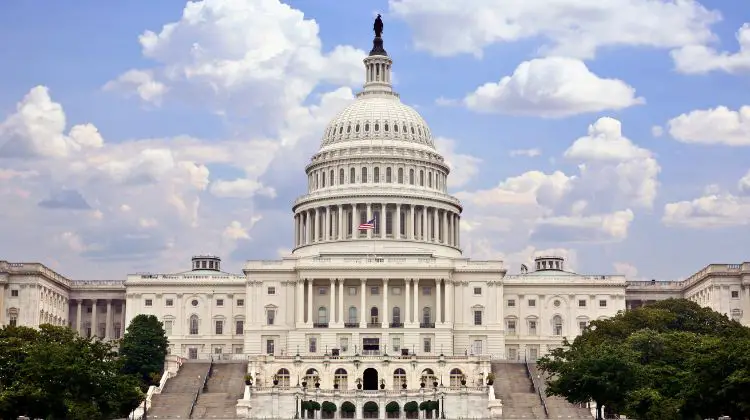A recent study revealed that 64% of American workers have less than three months of cash savings available to them.
We’ve all encountered unexpected financial difficulties. Whether it’s a car accident, an unexpected medical bill, or a loss of income. These unplanned expenses, whether large or small, often seem to occur at the worst possible times.
Creating an emergency fund is an important way to protect yourself. By putting money aside, you can recover faster and get back on track to meet your larger savings goals. If you’re ready to get started, read on to learn more about building an emergency fund.
What Exactly Is an Emergency Fund?
An emergency fund serves as a financial safety net. It is money set aside specifically to cover unexpected expenses. This can include medical bills, job loss, or major household repairs. To help ensure financial stability in times of crisis, it is typically recommended to have 3-6 months’ worth of living expenses saved in an emergency fund.
What’s the Difference Between an Emergency Fund vs. Savings?
An emergency fund and savings are both important financial planning tools. However, they serve different purposes.
An emergency fund is a sum of money set aside for unforeseen expenses, such as medical bills or car repairs. An emergency fund provides a safety net in case of an unexpected event that could otherwise cause financial hardship.
Savings, on the other hand, are funds set aside for planned expenses or long-term goals. For instance, a down payment on a house or a vacation. The goal of savings is to accumulate funds over time for a specific purpose.
Benefits of Building an Emergency Fund
Emergency funds are an important component when planning your finances. Additionally, they can provide significant benefits to individuals who maintain them. These benefits include:
Avoids High-Interest Debt
Having an emergency fund can help you avoid high-interest debt. When unforeseen expenses arise, individuals who don’t have an emergency fund may be forced to rely on bad credit cards or personal loans. This leads to high-interest debt and can have a long-term impact on an individual’s financial health.
Reduces Anxiety and Stress
Financial stress can have a significant impact on an individual’s mental health and well-being. By having an emergency fund, individuals can reduce the anxiety that comes with worrying about how they will pay for unexpected expenses. This can lead to improved mental health, which can have a positive impact on all areas of an individual’s life.
Helps Preserve Long-Term Financial Goals
Another benefit of having an emergency fund is that it can help individuals preserve their long-term financial goals. For example, if an unexpected cost arises and an individual does not have an emergency fund, they may be forced to dip into their retirement savings or other long-term investments to cover the expense. This can have a significant impact on their ability to achieve their long-term financial goals.
Provides a Sense of Security
Knowing that they have a financial safety net to fall back on in the event of an unexpected expense can provide individuals with a greater sense of control over their financial lives. This can lead to improved financial well-being and a greater sense of overall satisfaction.
Helps Avoid the Need to Borrow From Family and Friends
Having an emergency fund can help individuals avoid the need to borrow. Whether from family or friends in the event of an unexpected expense.
While borrowing may seem like a viable option, it can put a strain on relationships and lead to feelings of guilt and resentment. By having an emergency savings, individuals avoid such challenges and maintain healthy relationships with their loved ones.
How to Build Emergency Fund: 5 Easy Steps
Building an emergency fund is an important aspect of personal finance. And it doesn’t have to be difficult. Here are five easy steps to help you establish an emergency fund:
1. Determine Your Monthly Expenses
Building an emergency fund determines your monthly expenses. This includes your mortgage, utilities, food, transportation, and any other necessary expenses. By calculating your monthly expenses, you can determine how much money you need to save to cover 3-6 months’ worth of expenses.
2. Set a Goal for Your Savings
Once you know how much money you can save, set a savings goal. Determine how much you can realistically save each month and how long it will take you to reach your goal. You may need to make some adjustments to your budget to free up additional funds to contribute to your emergency fund.
3. Choose a Savings Account
It’s important to choose a savings account that will help you reach your emergency fund savings goal. Look for accounts that offer high-interest rates, low fees, and easy access to your funds. Some popular options include high-yield savings accounts, money market accounts, and certificates of deposit (CDs).
4. Automate Your Savings
Automating your savings is a great way to build your emergency fund. Set up direct deposits from your checking account to your emergency fund savings account each month. This will ensure that you are consistently contributing to your emergency fund without having to think about it.
5. Stay Committed
Building an emergency fund takes time and commitment. It’s important to stay committed to your savings goals. Try to avoid the temptation to dip into your emergency fund for non-emergency expenses. By staying committed to your savings goals, you can enjoy better financial planning.
Start Emergency Fund-Saving Today!
Building an emergency fund is ultimately about gaining peace of mind. As a result, you’ll be able to handle unexpected expenses and focus on other ways to build wealth, such as contributing to retirement and paying down debt.
Do you need help establishing an emergency fund? Subscribe to our newsletter to find the latest financial news and guidance.








Reader Interactions